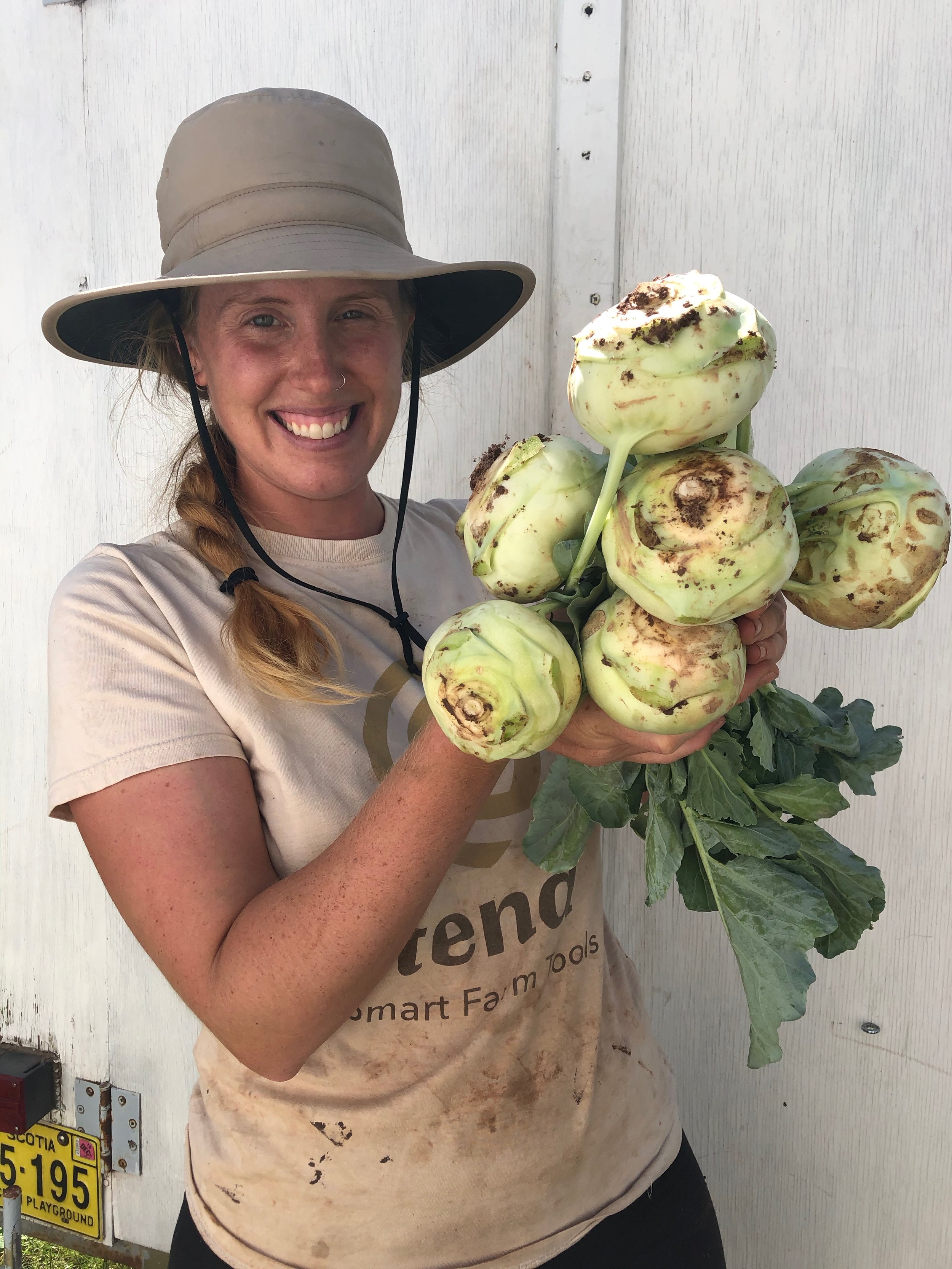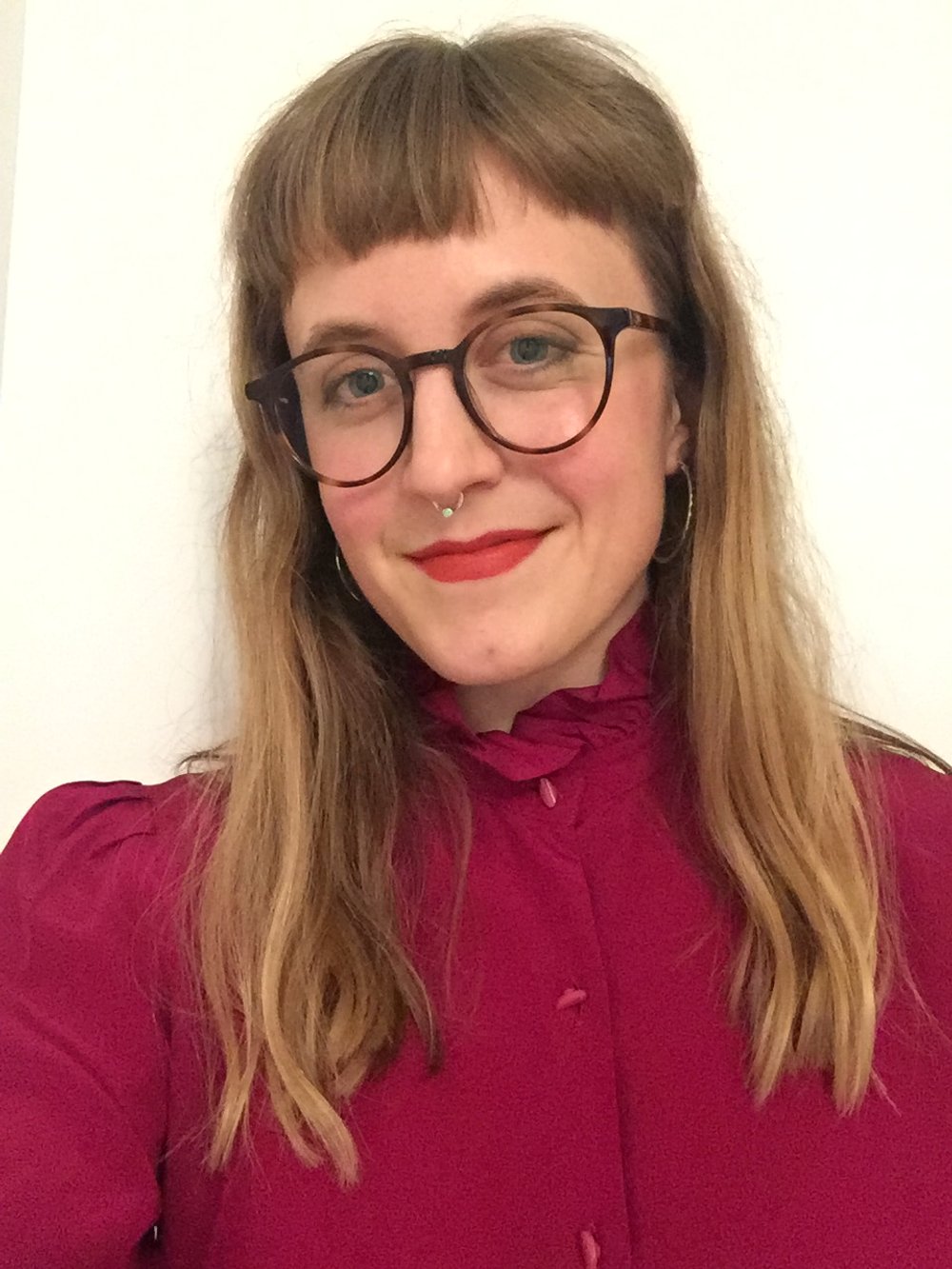
The Researchers
Photo credit: Katherine Aske
Dr. Annette Aurélie Desmarais
Past Canada Research Chair in Human Rights, Social Justice and Food Sovereignty (2013-2023)
Annette Aurélie Desmarais was appointed Canada Research Chair (CRC) in Human Rights, Social Justice and Food Sovereignty at the University of Manitoba back in 2013. Her goal is to advance research on the conceptual framework, practice, politics, potential and challenges of food sovereignty to build ecologically sustainable, socially-just, and healthy food systems. At this point, her research is focused on investigating the role of land tenure dynamics in enhancing and/or hindering the implementation of food sovereignty in Canada, exploring the gender dimensions of food sovereignty, examining the potential of agroecology on the Prairies, and analyzing the experiences and challenges of youth entering agriculture and engaging in food system transformation. She engages in collaborative, participatory research in Canada and beyond. As this website attests, she is working with an amazing team of researchers!
Annette is Professor in the Department of Sociology and Criminology, and also an Adjunct Professor to the Department of Environment and Geography at the University of Manitoba. Annette is the author of La Vía Campesina: Globalization and the Power of Peasants (Fernwood Publishing 2007) that has been published in French, Spanish, Korean, Italian and Portuguese. She co-edited three books on food sovereignty: Food Sovereignty: Reconnecting Food, Nature and Community (Fernwood Publishing, 2010), Food Sovereignty in Canada: Creating Just and Sustainable Food Systems (Fernwood Publishing, 2011), and Public Policies for Food Sovereignty: Social Movements and the State (Routledge, 2017). She is also editor of Frontline Farmers: How the National Farmers Union Resists Agribusiness and Creates Our New Food Future (Fernwood Publishing, 2019). Prior to obtaining her doctorate in Geography, Annette was a small-scale cattle and grain farmer in Saskatchewan for over a decade. She also worked as technical support to La Via Campesina for a number of years and continues to conduct participatory research with member organizations of this transnational agrarian movement, including the National Farmers Union in Canada.
-

Dr. André Magnan
André Magnan is Associate Professor of Sociology and Social Studies at the University of Regina. His research and teaching interests include the sociology of agri-food systems, globalization and development, and sociological theory. Dr. Magnan has two principal areas of research. First, he has studied the financialization of agrifood systems, with a focus on changing patterns of farmland ownership and control. Here Dr. Magnan has documented how financial investors of different stripes are buying prairie farmland on a large scale. Along with Annette Desmarais, he is leading a multi-year study funded by the Social Sciences and Humanities Research Council that aims to understand how investor activity and farmland ownership concentration are affecting family farmers, rural communities, and the agricultural industry in the Canadian prairie provinces.
Second, he has examined the history and politics of grain marketing on the Canadian prairies, in particular, the rise and fall of the Canadian Wheat Board, one of Canada’s most important agricultural institutions. Dr. Magnan’s research on the history of the Canada-UK wheat trade and the CWB was published in 2016 as a book entitled, When Wheat was King, by UBC Press.
-

Darrin Qualman
Darrin Qualman is Director of Climate Crisis Policy and Action for Canada’s National Farmers Union. He is the author of the 2019 report Tackling the Farm Crisis and the Climate Crisis, the 2019 book Civilization Critical: Energy, Food, Nature, and the Future, and the 2021 report Imagine If: A Vision of a Near-Zero-Emission Farm and Food System for Canada. His research, writing, and educational pursuits over the past 20 years have all aimed at creating a big-picture, long-term view of how humans turn nature, energy sources, and technologies into cities, food supplies, manufacturing systems, and cultures. He has academic degrees in history, biology, and political studies. He farmed for many years in Saskatchewan, raising grains, oilseeds, pulse crops, and specialty crops.
-

Dr. Mengistu Assefa Wendimu
Mengistu Wendimu is an Economic Analyst at Manitoba Agriculture and an Adjunct Professor at the University of Manitoba’s Agribusiness and Agricultural Economics department. Mengistu obtained his PhD in Agricultural Economics from Copenhagen University in Denmark. Since joining Manitoba Agriculture in 2017, Mengistu has been coordinating economic research projects funded by the department; conducting customized research and economic analysis to support government strategy and policy development; and collaborating with universities, industry organizations, and not-for-profit research institutions to conduct industry-relevant economic research. Before joining Manitoba Agriculture, Mengistu spent two years at the University of Manitoba as a research associate and post-doctoral fellow. While at the University of Manitoba, Mengistu worked on research projects that examined the accessibility and affordability of “healthy” foods in Northern Manitoba and conducted research on the social impacts and environmental implications of changes in farmland ownership in Manitoba, Saskatchewan, and Alberta. Mengistu continued his collaboration on SSHRC funded farmland research project with Professor Annette Desmarais at the University of Manitoba and Professor Andre Magnan at the University of Regina. Mengistu has published several peer-reviewed research articles and won several very competitive scholarships and research funding amounting to more than $600,000 (CAN). Mengistu has traveled to more than 15 countries in Africa, Asia, Europe, and North America for conferences, training, and research work. His current research interests include the economics of sustainable agriculture, on-farm adoption of beneficial management practices, farming systems resilience, and rural development.
-

Naomi Beingessner
Naomi Beingessner is a doctoral candidate in the Department of Environment and Geography at the University of Manitoba. After several years as a high school teacher, she went back to school and received an MA in Justice Studies from the University of Regina. Her MA research explored how alternative farmland tenure models in Saskatchewan contribute to food sovereignty. That lead her to a position coordinating a community-based research unit at the University of Regina, facilitating research teams of academics and community stakeholders in fields ranging from public health to education to recreation, addressing societal issues at a local level. Currently, Naomi’s PhD research encompasses those past values of social justice and the importance of community engagement. The research focuses on sustainable, equitable agricultural land tenure and access in the Canadian prairies, considering questions of rights and responsibilities to land, collective and individual goals, and discourse and actions that challenge or legitimize land regimes. Case studies include alternative grazing land tenure models, trespassing legislation, and settler involvement in the Treaty Land Sharing Network, of which Naomi is a Coordinating Committee member.
Naomi’s home in Saskatchewan contains two inspiring teens, a ridiculously supportive husband, two cats, and more canning jars than she will ever fill. In her free time, she reads fiction voraciously, gardens, and participates in various activism and organizing work. She attributes her interest in food issues to her family background in mixed farming and farm activism in Saskatchewan.
-
Hannah Bihun
Hannah Bihun (she/her) is a Red River Métis/settler woman with ancestral ties to St. Boniface and Ste. Anne, Manitoba. She holds a B.A. in Geography with honours and a M.A. in Geography from the University of Manitoba. Both her undergraduate and graduate research centered on the food system and the impact that social, political, and physical characteristics of the food system have on social and environmental landscapes. Hannah’s undergraduate honours thesis focussed on the end of the food system - food waste. Through qualitative research with volunteers and guests at a Winnipeg soup kitchen, she analyzed opportunities for redirecting food waste from grocery stores and restaurants to soup kitchens in Winnipeg, Manitoba. Later, Hannah worked for a non-profit that provided access to community, essential services, and perhaps most importantly, food, to those experiencing poverty or houselessness in Winnipeg. But her academic career was not over yet, Hannah graduated in the spring of 2021 with an M.A. in Geography. Her thesis work investigated changing land tenure patterns and their impact on the social and environmental landscapes of rural Manitoba, drawing from interviews with farmers and rural municipal officials from four different rural municipalities across Manitoba. Throughout university, Hannah also spent time working on small scale vegetable farms and through those experiences gained a deep respect and understanding for the work of farmers, the land, and the role that growing food plays for communities and the environment. She recognizes that farmland is central to all of this, it is at once a place where we come together for community and connection with one another and the environment, and it is also an essential resource that must be respected and cared for now and into the future.
-
Katherine Aske
Katherine is a settler and farmworker who grew up on unceded Mi’kmaq territory and who joined the team researching changing farmland tenure dynamics on the prairies in 2018. For her MA thesis research at the University of Manitoba she analyzed the extent and implications of the financialization of farmland in Alberta, particularly in relation to the comprehensive transformation required across the agricultural sector in light of climate change and other intersecting crises. She was led to do this work after witnessing investor interest in buying farmland in New Brunswick while she was working for the National Farmers Union (NFU) in 2016. After three seasons farming in Alaska and a season at the Tsawwassen First Nation Farm School, she now works at UBC Farm on the unceded territory of the xʷməθkʷəy̓əm Musqueam People as the Practicum Field Coordinator. She is also an organizer with the NFU’s Farmland Committee, and involved in work to support the NFU in it’s development of an equitable land policy through a Partnership Engage Grant.
-

Melissa Davidson
Melissa Davidson was born and raised in rural Saskatchewan. She holds a BA in International Studies, an MA in History, and an MA in Environment and Geography. In addition to her academic pursuits, Melissa has worked as a researcher and consultant for various academics, governments, and First Nations on issues related to land and the history of land use. Melissa loves to garden, explore the outdoors, and make music. Currently, she is a Senior Researcher at Narratives Inc.
-

Laura Funk
Laura Funk (she/her) is a settler who has had the privilege of calling multiple cities throughout Western Canada her home. Laura is a graduate of the University of the Fraser Valley (B.A.) and the University of Manitoba (M.A.) in the field of sociology. Her interest in food security, politics and social inequality led her to focus her academic career on food systems research. While living in British Columbia, Laura studied the Vancouver Food Security Strategy and patterns of local food consumerism. Laura has also worked as a community researcher, collaborating with a local food security coalition and the regional health authority to assess community levels of food insecurity and identify social and physical barriers to accessing food. More recently, she worked with the Centre for Human Rights Research, studying victory gardens as a response to the COVID-19 pandemic and advocating for greater support for the network of community gardens in Winnipeg, Manitoba. For her master’s thesis, Laura focused on the politics of managing land registries . She highlighted the need to maintain and strengthen access to public data in the interest of food sovereignty research. While recognizing that land surveying has been used a colonial tool for the dispossession of land from Indigenous peoples, present day land registries provide valuable information that can inform more equitable and respectful policies regarding land in Canada, therefore providing benefits to society at large. While not presently engaged in food systems research, Laura continues to support her local food system as a community member, recognizing and promoting the importance of caring for our land and respecting the diverse connections people hold to the places they call home.
-
Dr. Lauren Kepkiewicz
Lauren is a Banting Postdoctoral Researcher in the Department of Sociology at the University of Manitoba. Her current research partners with the Bow Valley Food Alliance to examine food sovereignty in mountain communities, with a focus on the Bow Valley. She is a member of the RAIR collective which is a collaborative research project that aims to support Indigenous land rematriation, land sharing, and land back. Her work draws from her experience as a research assistant and management team member for the Community First: Impacts of Community Engagement (CFICE): Community Food Sovereignty Hub as well as her participation in the National Farmers Union Indigenous Solidarity Working Group (ISWG), the Canmore Community Garden, the Food Equity and Activist Study Team, the Collaborative Alliance of Farmer Training Ontario, Food Secure Canada Youth Caucus, and Africa Youth for Peace and Development. She has taught undergraduate courses on food systems and has published work in both academic and popular articles and books. Lauren has a PhD in geography with a focus on food studies from the University of Toronto. She currently lives in Chânh Pay Oda with her two kids, partner, mom, and dog.
-

Dr. Evan Bowness
Dr. Evan Bowness is a Postdoctoral Researcher in the Food and Agriculture Institute at University of the Fraser Valley on the unceded territories of the Stó꞉lō peoples, and a Research Associate at the University of Manitoba. Evan studies the prospects for a just transition in food systems, and has published on topics such as agroecology, food sovereignty and the corporate food regime. His current research examines the possibilities and limitations of agroecology at multiple scales and the social implications of cellular agriculture, a novel agricultural technology positioned to significantly shape food systems of the future. Evan has a PhD from UBC's Institute for Resources, Environment and Sustainability, and Sociology degrees from the University of Manitoba where he has taught undergraduate courses on social inequality and community-based research.
-

Jessie MacInnis
Jessie MacInnis is a small-scale, first generation agroecological farmer and scholar-activist based in unceded and unsurrendered Mi'kmaq territory (aka Nova Scotia), Canada. After six years as a farmworker, Jessie and her sister started their farm Spring Tide Farm in 2020. Together they grow vegetables and cut flowers for a farmer’s market and Community Supported Agriculture (CSA) program. Agroecology is a foundational part of their farm: from the practices they engage (cover crops, soil-health building, low-tillage, and crop and non-crop biodiversity) on the farm, to the ways in which they seek and share knowledge horizontally with other growers, to relationships they build with their community through solidarity approaches to food accessibility.
Jessie is currently the Youth President of the National Farmers Union of Canada and has been involved with La Via Campesina regionally and internationally for several years working to promote and strategize towards the implementation of the UN Declaration on the Rights of Peasants and Other People Working in Rural Areas (UNDROP), organizing with the Youth Articulation,and participating in the Committee for World Food Security’s Civil Society Mechanism youth working group. Jessie holds a BA (Hons) in International Relations and a Professional Certificate in Food Security from Ryerson University. She recently graduated from the first cohort of the Master of Human Rights (MHR) program at the University of Manitoba, where her research focused on the applicability of UNDROP to the Canadian agriculture policy context. She is currently working on building her farm business while conducting research as an assistant to Prof. Annette Desmarais.
-

Dr. Nettie Wiebe
Nettie Wiebe farms near Delisle, Saskatchewan, growing organic grains and pulse crops as well as raising cattle. She served in elected leadership positions of the National Farmers Union for ten years and was the first woman to lead a national farm organization in Canada. The NFU was a founding member of the global Via Campesina movement where Nettie played a leadership role as a member of the International Coordinating Committee from 1996-2004. She continues to work internationally, as a civil society participant at the UN Committee on World Food Security in Rome, and is a member of IPES-Food - the International Panel of Experts on Sustainable Food Systems.
Dr. Wiebe is an active participant in public discourse on sustainable agriculture and rural communities, women’s equality, human rights and food sovereignty. Her recent publications include contributing chapters on Canadian farm and food policy to academic text books including “Reaching Beyond Hunger: the Right to Food and Food Sovereignty” (2018) in Canadian Social Policy for Social Workers, “Crisis in the Food System: the Farm Crisis” in Critical Perspectives in Canadian Food Studies, (2nd ed. 2017, 3 rd ed. forthcoming). She has also co-edited two volumes on food soveregnty and co-authored several articles on “land grabbing” and land concentration in Saskatchewan. She received an Honourary Doctorate of Laws from the University of Alberta in 2018.



